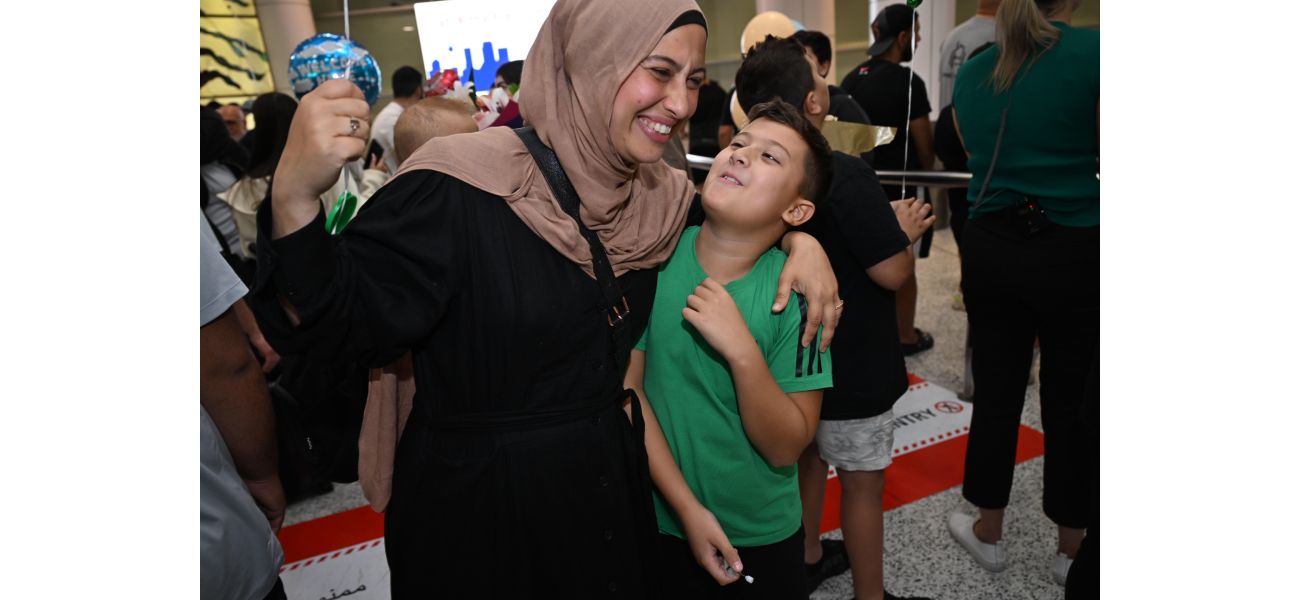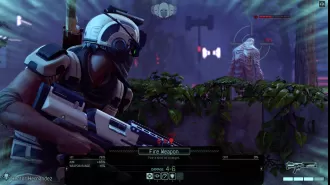Hundreds of Australians escaping Lebanon arrive in Sydney, bringing happiness and relief.
350 Aussies and family returned to Sydney via government's evacuation flights from Lebanon.
October 7th 2024.

A group of almost 350 Australians and their loved ones have arrived in Sydney on a special repatriation flight organized by the government for those fleeing Lebanon. The country has become increasingly unsafe, and more than 3700 Australians have registered with the Department of Foreign Affairs and Trade to leave. Of those, 904 have already departed on assisted flights from Beirut Airport.
At Sydney Airport, there was a sense of joy and relief as family and friends waited for the plane from Cyprus via Doha to land. Some had brought balloons, flowers, and even wore pajamas to welcome their loved ones. The plane carried 349 people, and one of the evacuees expressed their gratitude for the Australian government's efforts, saying, "I'd like to thank the Australian government. They really did a very good job for us. They bring us from Lebanon. I was under fire."
Another woman, who was holding a baby, struggled to find words to express her emotions. She said, through tears, "I can't describe, you know. Every day I was there I was thinking if I'll make it. Thanks God. Thanks God." Foreign Minister Penny Wong also welcomed the travelers home on social media and announced that two more assisted flights would leave for Cyprus on Monday.
Meanwhile, as evacuation efforts continue overseas, rallies have been held across Australia to mark the one-year anniversary of the October 7 attacks. The Israeli communities in Australia have been vocal about their grief and anger, with protests taking place outside corridors of power in Canberra. Israeli Ambassador to Australia, Amir Maimon, expressed his sadness, saying, "As an ambassador, as an Israeli, as a Jew and as a human being, it is sad."
While the commemoration in Canberra was solemn, the majority of Australians are becoming weary of the constant protests, with a recent poll showing that more than half of the community opposes the marches. In response to the October 7 attack, which saw Hamas-led militants kill 1200 people and abduct 250, Israel launched a military campaign that has resulted in the deaths of over 41,000 Palestinians and displaced most of the territory's 2.3 million people. The war has also caused widespread hunger and destruction.
In Lebanon, the militant group Hezbollah has continued to attack Israel with rockets, missiles, and drones, even after Israeli strikes killed most of its top leaders and destroyed large areas of the country. Israel has also launched a limited ground operation across the border to drive the group away and allow its citizens to return home. However, the ongoing conflict has resulted in the deaths of over 1,400 Lebanese, including civilians and fighters, and has displaced 1.2 million people.
The situation in Lebanon remains dire, with the recent killing of 10 firefighters in an Israeli strike. This is just one of many strikes that have killed dozens of first responders, according to Lebanon's Health Ministry. As the situation continues to escalate, the Australian government is urging its citizens to take any available commercial flights to leave the country. The events of October 7 have had a lasting impact on both Israel and Lebanon, and it is crucial for the international community to work towards finding a peaceful resolution to this ongoing conflict.
At Sydney Airport, there was a sense of joy and relief as family and friends waited for the plane from Cyprus via Doha to land. Some had brought balloons, flowers, and even wore pajamas to welcome their loved ones. The plane carried 349 people, and one of the evacuees expressed their gratitude for the Australian government's efforts, saying, "I'd like to thank the Australian government. They really did a very good job for us. They bring us from Lebanon. I was under fire."
Another woman, who was holding a baby, struggled to find words to express her emotions. She said, through tears, "I can't describe, you know. Every day I was there I was thinking if I'll make it. Thanks God. Thanks God." Foreign Minister Penny Wong also welcomed the travelers home on social media and announced that two more assisted flights would leave for Cyprus on Monday.
Meanwhile, as evacuation efforts continue overseas, rallies have been held across Australia to mark the one-year anniversary of the October 7 attacks. The Israeli communities in Australia have been vocal about their grief and anger, with protests taking place outside corridors of power in Canberra. Israeli Ambassador to Australia, Amir Maimon, expressed his sadness, saying, "As an ambassador, as an Israeli, as a Jew and as a human being, it is sad."
While the commemoration in Canberra was solemn, the majority of Australians are becoming weary of the constant protests, with a recent poll showing that more than half of the community opposes the marches. In response to the October 7 attack, which saw Hamas-led militants kill 1200 people and abduct 250, Israel launched a military campaign that has resulted in the deaths of over 41,000 Palestinians and displaced most of the territory's 2.3 million people. The war has also caused widespread hunger and destruction.
In Lebanon, the militant group Hezbollah has continued to attack Israel with rockets, missiles, and drones, even after Israeli strikes killed most of its top leaders and destroyed large areas of the country. Israel has also launched a limited ground operation across the border to drive the group away and allow its citizens to return home. However, the ongoing conflict has resulted in the deaths of over 1,400 Lebanese, including civilians and fighters, and has displaced 1.2 million people.
The situation in Lebanon remains dire, with the recent killing of 10 firefighters in an Israeli strike. This is just one of many strikes that have killed dozens of first responders, according to Lebanon's Health Ministry. As the situation continues to escalate, the Australian government is urging its citizens to take any available commercial flights to leave the country. The events of October 7 have had a lasting impact on both Israel and Lebanon, and it is crucial for the international community to work towards finding a peaceful resolution to this ongoing conflict.
[This article has been trending online recently and has been generated with AI. Your feed is customized.]
[Generative AI is experimental.]
0
0
Submit Comment





